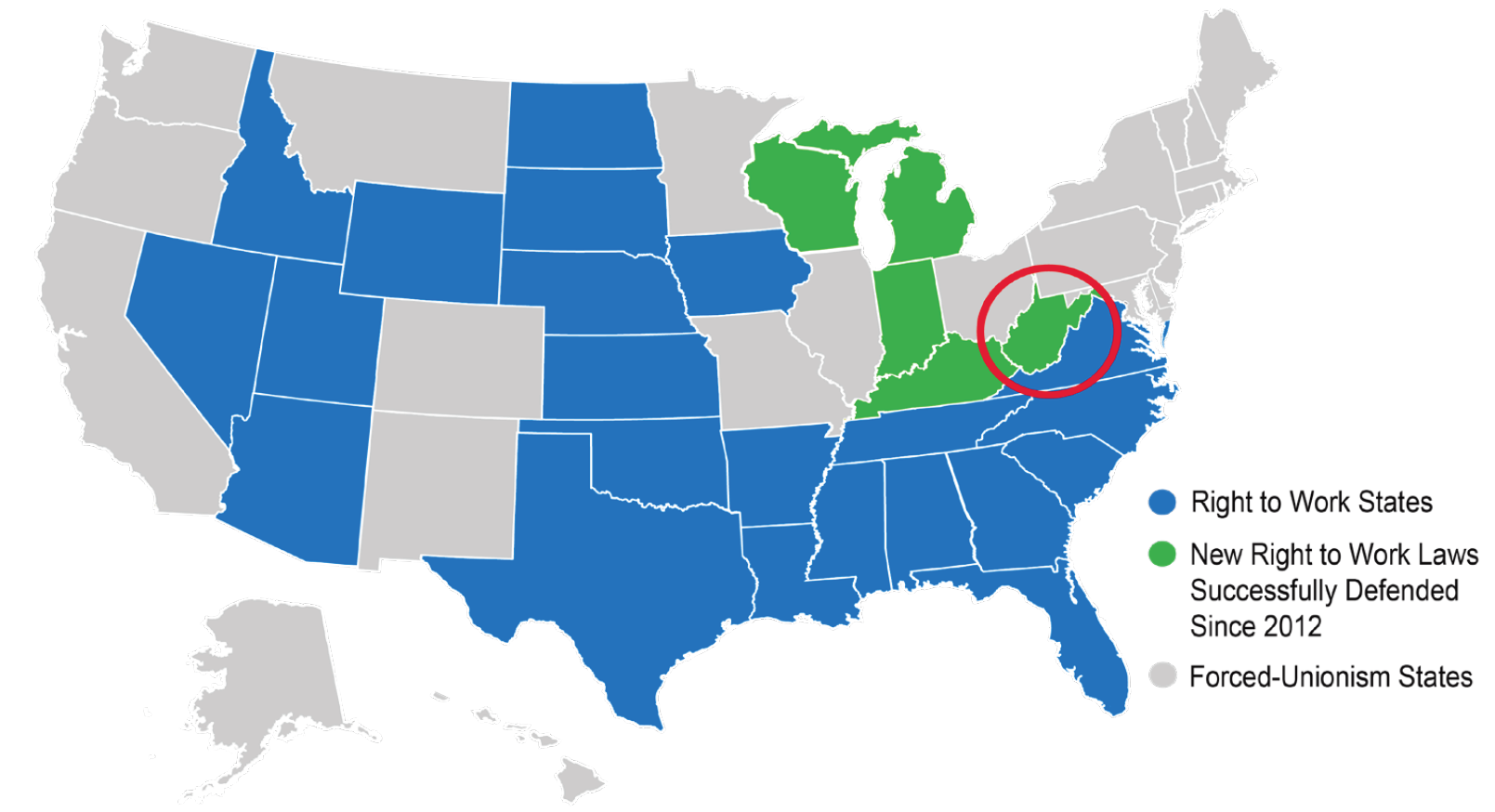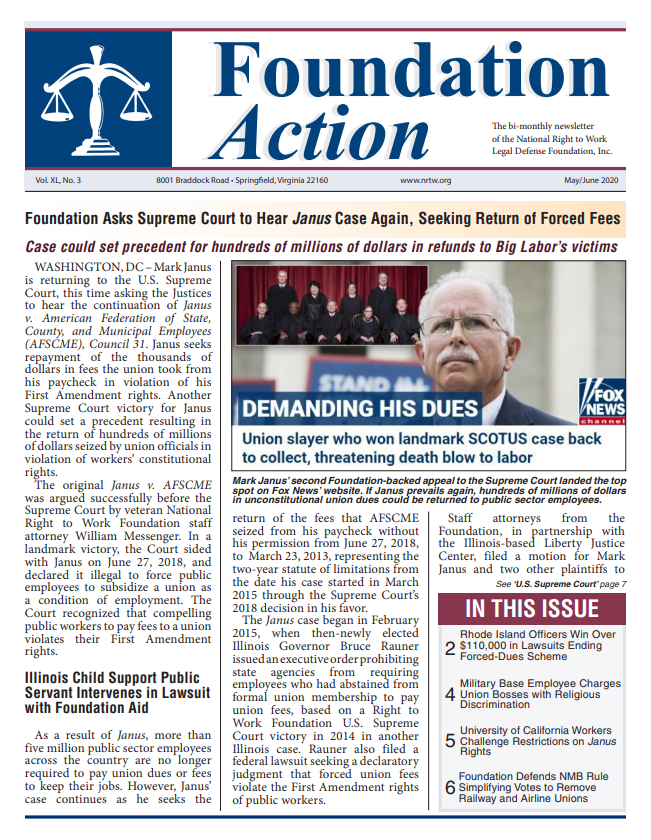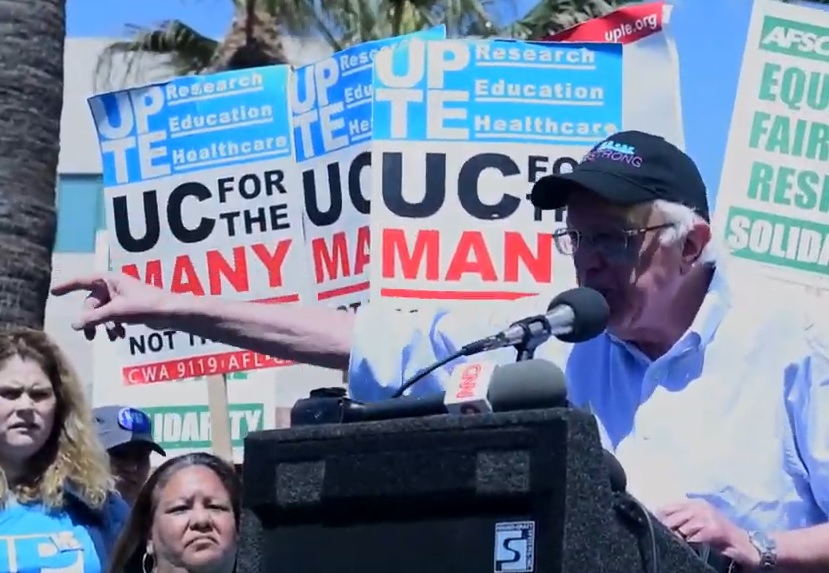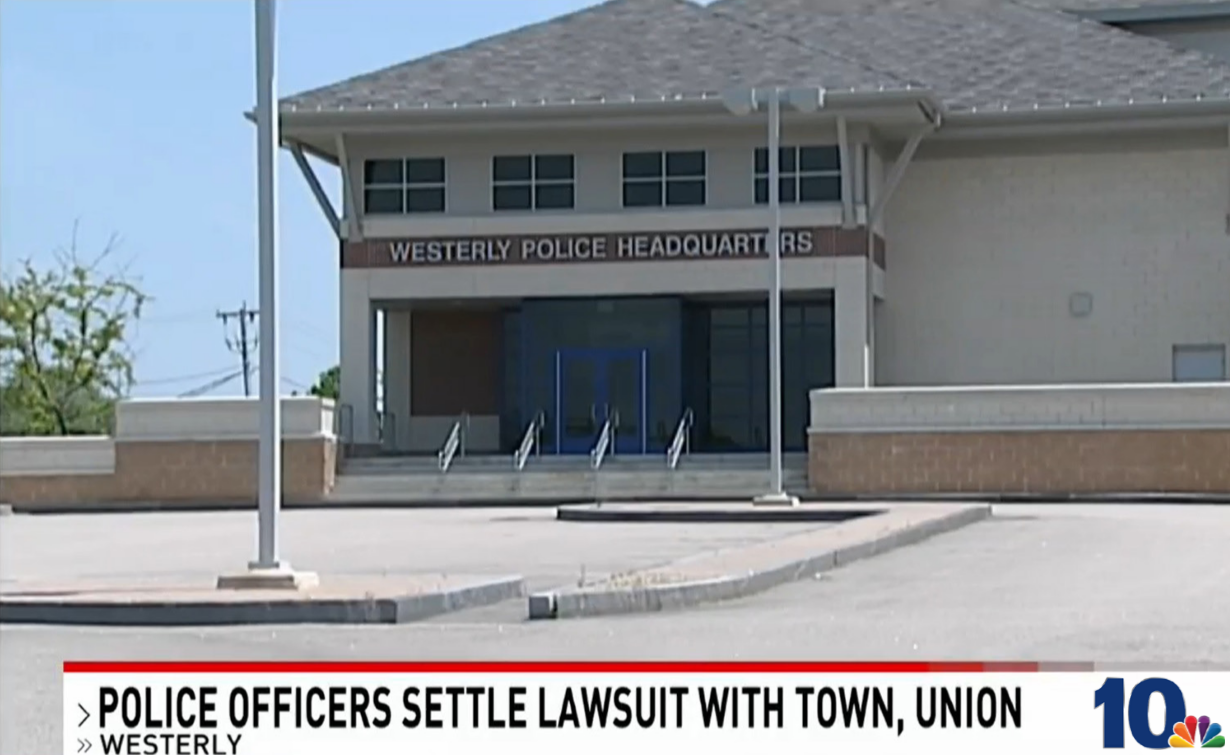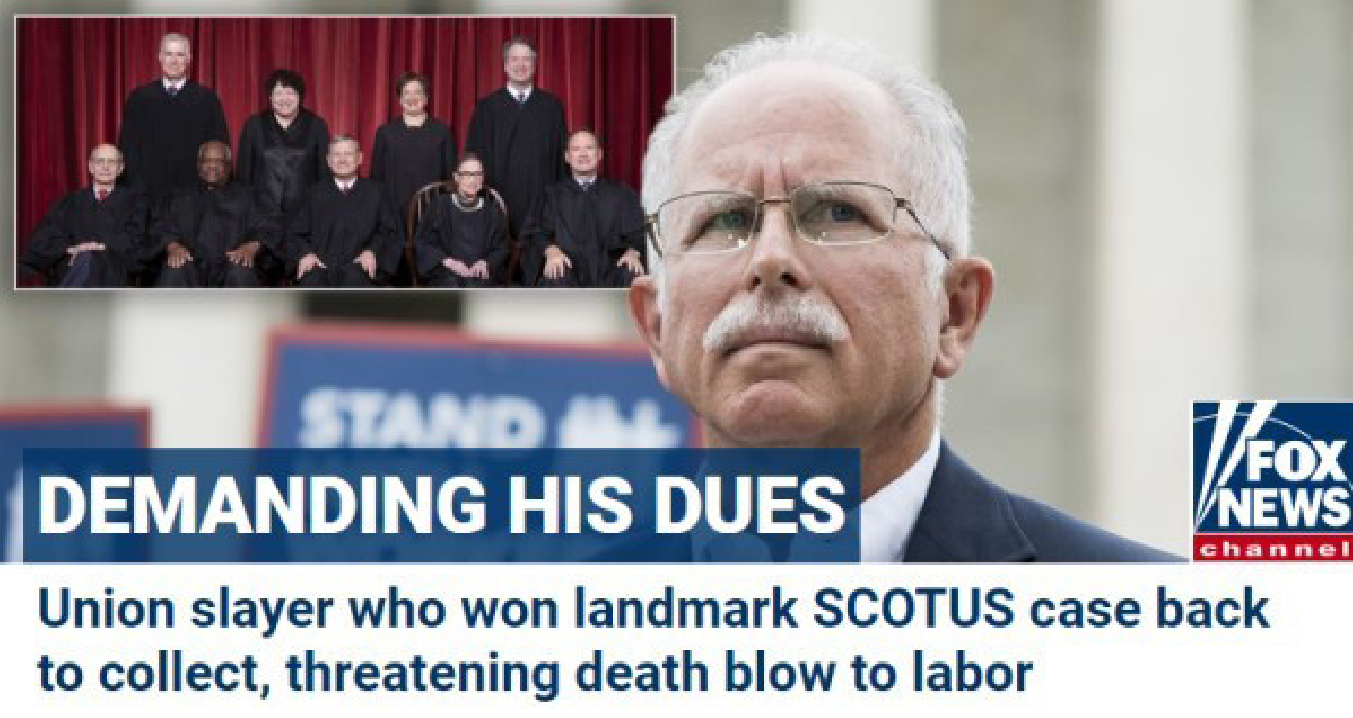Chicago Educators Hit CTU Union with Federal Lawsuit for Stonewalling Janus Rights
The following article is from the National Right to Work Legal Defense Foundation’s bi-monthly Foundation Action Newsletter, July/August 2020 edition. To view other editions or to sign up for a free subscription, click here.
Union bosses using “escape period” schemes to block First Amendment right to cut off dues
CTU bosses tried to block Ifeoma Nkemdi’s First Amendment Janus right to end dues deductions from her paycheck. Now she is fighting back with a federal lawsuit.
CHICAGO, IL – Ifeoma Nkemdi, a second-grade teacher at Newberry Math and Science Academy, and Joanne Troesch, a Technology Coordinator at Jones College Prep, didn’t want to abandon their students during an October 2019 strike ordered by Chicago Teachers Union (CTU) bosses against the city’s public schools.
“I didn’t feel they needed to be away from school, period,” Nkemdi told The Wall Street Journal editorial board about her students. “Time away was going to be detrimental.”
While researching how to exercise their right to keep working despite the union boss strike order, the two women also discovered their First Amendment right to refuse to subsidize the union. The Supreme Court recognized this right in the landmark 2018 Janus v. AFSCME decision, which was argued and won by National Right to Work Foundation staff attorneys.
Though they both submitted requests to CTU officials in October 2019 exercising their rights to end union membership and cut off all dues deductions, union bosses notified the two educators that they would continue to seize dues from each of their paychecks for almost another year, citing an “escape period” scheme that purports to limit attempts by educators to exercise their Janus rights to just one month per year.
Suit: Union Bigwigs Never Informed Teachers of Right to Cut Off Dues
Now, with free legal aid from the Foundation, Nkemdi and Troesch are suing CTU and the Chicago Board of Education in the U.S. District Court for the Northern District of Illinois for violating their First Amendment rights as recognized by the Supreme Court in the Janus decision.
In Janus, the High Court struck down mandatory union fees as a violation of the First Amendment rights of government employees. The Court ruled that any dues taken without a government worker’s affirmative consent violate the First Amendment, and further made it clear that these rights cannot be restricted absent a clear and knowing waiver.
“I just want the Janus case to be respected,” Nkemdi said of educators’ First Amendment rights to the Chicago Tribune. “I want people’s constitutional rights, the right to work to be established. I don’t feel like we should be ignoring the Supreme Court on that issue.”
Their suit asks the District Court to order CTU and the Board of Education to stop enforcing the unconstitutional “escape period,” as well as inform bargaining unit employees of their First Amendment right under Janus to stop the deduction of union dues at any time.
The complaint also requests that the court allow workers to retroactively demand back dues seized without their consent by CTU bosses and order refunds of all dues seized under the illegal “escape period” policy from Nkemdi, Troesch and all other educators who submitted requests to cut off dues.
Union Bosses Slammed with Foundation Suits Nationwide
Foundation staff attorneys are continuing to assist public employees around the country in eliminating illegal restrictions on the exercise of their Janus freedoms, resulting already in at least six favorable settlements where union boss schemes were ended and unlawful dues refunded.
In Alaska, Christopher Woods, a Vocational Instructor at the Goose Creek Correctional Center, filed a federal lawsuit in March challenging a similar “escape period” scheme with free Foundation legal assistance. His complaint says that he joined the Alaska State Employees’ Association (ASEA) upon being hired in 2013 “because he was told by a union representative that he had no choice.”
His complaint now asks the U.S. District Court for the District of Alaska to order ASEA officials and the State of Alaska to refund all dues seized illegally under the scheme.
“In non-Right to Work states where politicians have historically granted union bosses the power to force both private and public sector workers to pay them or be fired — such as Illinois and Alaska — union bosses may feel emboldened to keep imposing illegal schemes on public servants to curtail their First Amendment Janus rights,” commented National Right to Work Foundation President Mark Mix. “However, Janus is the law, and the Foundation will file as many lawsuits for public workers as is necessary to ensure that union bosses stop enriching themselves by violating the constitutional rights of the employees they claim to represent.”
Legal Victory: West Virginia Supreme Court Unanimously Upholds Right to Work
The following article is from the National Right to Work Legal Defense Foundation’s bi-monthly Foundation Action Newsletter, July/August 2020 edition. To view other editions or to sign up for a free subscription, click here.
Foundation attorneys filed 10 legal briefs defending Right to Work from union boss legal attack
The Foundation added West Virginia to the list of states where it has successfully helped defend Right to Work since 2012. Now the state’s motto, “Montani Semper Liberi” (“Mountaineers are Always Free”) applies to the state’s workers.
CHARLESTON, WV – The West Virginia Supreme Court closed the book on a case brought by union lawyers seeking to overturn the state’s popular Right to Work Law, which protects Mountain State workers from being forced to pay dues or fees to a union as a condition of employment. Foundation staff attorneys filed 10 briefs in defense of Right to Work, including briefs submitted for pro-Right to Work employees who wanted the freedom to cut off financial support for unions in their workplace.
Ultimately, the West Virginia Supreme Court rejected outrageous arguments from union lawyers that union hierarchies have a legal “right” to a portion of a worker’s paycheck because that worker is also forced to accept their so-called “representation.” In their ruling, the justices repeatedly cited the landmark 2018 Foundation-won Janus v. AFSCME decision in which the U.S. Supreme Court ruled that requiring public sector employees to pay union dues as a condition of employment is a First Amendment violation.
In the decision, Justice Evan Jenkins wrote for the majority that West Virginia’s Right to Work Law “does not violate constitutional rights of association, property, or liberty” and that states are “expressly authorized under federal law” to prohibit union bosses from requiring dues or fees as a condition of employment. Justice Jenkins also maintained that Janus provides strong support for the law.
The West Virginia Legislature passed Right to Work over then-Governor Earl Ray Tomblin’s veto in February 2016, making West Virginia the 26th Right to Work state. The Foundation immediately offered free legal assistance to employees who had questions about exercising their rights.
Foundation Attorneys Spring into Action as Soon as Protections Enacted
The Foundation also created a special task force to defend the West Virginia law, which began applying to collective bargaining agreements that were entered into, modified, renewed or extended after July 1, 2016.
On June 27, 2016, lawyers for several state unions brought a case (later renamed West Virginia AFL-CIO, et al. v. Governor James C. Justice, et al.) in an attempt to overturn the popular law. Polling consistently shows that Americans overwhelmingly back Right to Work laws. A poll of union households even found that 80 percent of union members supported the Right to Work principle that union membership and dues payment should be voluntary and not required as a condition of employment.
Despite decades of precedent upholding such laws, Judge Jennifer Bailey of the Kanawha County Circuit Court issued a February 2017 order at the behest of union lawyers, granting a preliminary injunction that purported to block the law. The union lawyers’ primary arguments in this case for why the Right to Work protections for workers should be overturned had already been rejected by a Federal Court of Appeals and the Indiana Supreme Court. They also ran counter to nearly 70 years of legal precedent, including U.S. Supreme Court decisions, upholding the constitutionality of state Right to Work laws.
Foundation staff attorneys filed legal briefs for Reginald Gibbs, who worked as a lead slot machine technician with the Greenbrier Hotel in White Sulphur Springs, West Virginia, and Donna Harper, who worked as a laundry aide and nursing assistant at the Genesis HealthCare Tygart Center in Fairmont, West Virginia. Harper’s brief explained that because she had exercised her right under the Right to Work protections to refrain from subsidizing the Teamsters union at her workplace, killing those protections would result in her being fired.
Union Boss Attacks on Right to Work in Other States Successfully Turned Back
“The West Virginia Supreme Court’s unanimous decision to safeguard the right to freely choose whether or not one will financially support a union marks a great victory for Mountain State employees,” observed National Right to Work Foundation President Mark Mix. “Workers who disapprove of union boss activities can rest assured that they cannot be terminated for refusing to tender dues to a union, and those who want to support union activities may do so uninhibited.”
In addition to West Virginia, Foundation staff attorneys have successfully pursued legal action in recent years to defend and enforce new Right to Work laws in Indiana, Michigan, Wisconsin and Kentucky, all of which have passed Right to Work protections for employees since 2012.
Delaware Poultry Worker Charges UFCW Brass with Illegal Dues Deductions, Threats
The following article is from the National Right to Work Legal Defense Foundation’s bi-monthly Foundation Action Newsletter, July/August 2020 edition. To view other editions or to sign up for a free subscription, click here.
Foundation attorneys assist worker leading effort to oust unpopular union
Employees at the Selbyville, DE, Mountaire Farms plant were subjected to an illegal forced-dues clause by UFCW union bosses, who for months have also tried to block their right to vote on whether union officials deserve to stay.
SELBYVILLE, DE – With free legal aid from National Right to Work Foundation staff attorneys, Mountaire Farms employee Oscar Cruz Sosa hit United Food and Commercial Workers (UFCW) Local 27 union bosses with federal unfair labor practice charges. The charges assert that union officials violated his and his coworkers’ rights by enforcing an illegal forced-dues provision in the monopoly bargaining contract, and that union bosses threatened him for spearheading a petition for a vote to remove the union.
Cruz Sosa’s charges come after the National Labor Relations Board (NLRB) Region 5 Director in Baltimore rejected union arguments that the decertification election Cruz Sosa and his coworkers requested should be blocked. Under a controversial NLRB-created policy known as the “contract bar,” employees’ statutory right to hold a decertification vote to remove a union can be blocked for up to three years when a union contract is in place.
However, under longstanding precedent the “contract bar” to decertification does not apply when the monopoly bargaining contract in place contains an unlawful forced-dues clause.
Worker Deflects Union Legal Attack by Exposing Illegal Forced-Dues Clause
Prior to this charge, the NLRB Region 5 Director found that the contract between Mountaire Farms and UFCW union officials illegally required workers to immediately pay union dues upon being hired, instead of providing new hires a 30-day grace period the federal labor statute and longstanding precedent require. Because Delaware lacks Right to Work protections for its employees, Cruz Sosa and his coworkers can be required to pay union fees to keep their jobs.
The NLRB Region 5 Director thus ruled that the vote Cruz Sosa and his coworkers requested should proceed, and scheduled the vote to decertify the union. Cruz Sosa’s unfair labor practice charge, citing that decision’s finding that the forced-dues clause is unlawful, asks the NLRB to order union officials to refund all dues and fees seized from him and his coworkers under the auspices of that illegal clause.
Even after they were unable to block the election with the “contract bar,” UFCW union officials did not give up. In fact, union lawyers have initiated at least three other “blocking charges” against the employer in a last-ditch effort to block the vote, another common tactic used by union bosses to halt or delay workers’ attempts to vote them out.
UFCW union officials’ attempts to stifle the decertification effort didn’t end there. They also asked that any vote be delayed and changed to a“mail-in” vote, even though it had already been scheduled to take place in person on the premises where the workers work every day. In the responses to the union attempts to scuttle the planned vote, Cruz Sosa’s Foundation-provided attorneys argued that the vote should go forward as scheduled, because on-site elections are the NLRB’s preferred method for conducting elections, and the on-site vote was announced to workers weeks ago.
Cruz Sosa also alleged that a UFCW agent came to his house uninvited back in March. The agent warned him “that the decertification process being undertaken was ‘illegal’” and that a court battle was coming, according to his charge filed at NLRB Region 5.
Union Agents Threaten Worker after He Attempts to Exercise Rights
Cruz Sosa’s charge states that this was “threatening” and “coercive behavior” and a clear attempt to restrain him and his coworkers in the exercise of their right under the National Labor Relations Act to vote out an unwanted union.
“The threats and dues deductions in this case show how union bosses regularly trample workers’ rights in order to keep forced dues rolling into their coffers,” observed National Right to Work Foundation Vice President Patrick Semmens. “We hope that NLRB Region 5 will immediately prosecute the union for these violations, and ultimately order the union to refund all dues and fees collected from Mountaire Farms workers under the unlawful forced-dues clause.”
Semmens continued: “While UFCW officials were caught red-handed in this case, these types of forced union dues abuses will continue until Delaware workers have the protection of a Right to Work law, which ensures that all union membership and financial support are strictly voluntary.”
Full Foundation Action May/June 2020 Newsletter Now Online
All articles from the May/June issue of Foundation Action are now on the website.
In this issue:
- Foundation Asks Supreme Court to Hear Janus Case Again, Seeking Return of Forced Fees
- Rhode Island Officers Win Over $110,000 in Lawsuits Ending Forced-Dues Scheme
- Military Base Employee Charges Union Bosses with Religious Discrimination
- University of California Workers Challenge Restrictions on Janus Rights
- Foundation Defends NMB Rule Simplifying Votes to Remove Railway and Airline Unions
Recent articles can be found here. To sign up for a free copy of the newsletter via mail please see the form at the bottom of this page.
Foundation Defends NMB Rule Simplifying Votes to Remove Railway and Airline Unions
The following article is from the National Right to Work Legal Defense Foundation’s bi-monthly Foundation Action Newsletter, May/June 2020 edition. To view other editions or to sign up for a free subscription, click here.
Brief opposes union lawsuit challenging a simplified decertification procedure
Trump NMB member Kyle Fortson was Chairman while the Board initiated changes to the process by which air and rail employees could vote out a union, following Foundation advice.
WASHINGTON, DC – National Right to Work Legal Defense Foundation attorneys filed a legal brief in United States District Court last month for a flight attendant, opposing an effort led by the AFL-CIO to overturn a recent rule by the National Mediation Board (NMB) that simplifies the process for workers hoping to vote out a union they oppose.
Foundation staff attorneys filed the amicus brief for Allegiant Airlines flight attendant Steven Stoecker to defend the NMB’s rule that removed arbitrary barriers to decertification elections under the Railway Labor Act (RLA). They also filed the brief for the Foundation itself, which has provided free legal representation to numerous workers in the railroad and airline industries under the jurisdiction of the RLA, which the NMB is charged with enforcing.
With Foundation Aid, Flight Attendant Defends Rights from Union Assault
The Foundation’s Strategic Litigation Program’s 1983 victory in Russell v. NMB allowed workers to terminate union monopoly representation under the RLA. However, removing an unwanted union under the old NMB rules required an unnecessarily complex process in which workers had to create and solicit support for a fake “straw man” just to vote out the incumbent union.
Under the NMB’s new rules, finalized in July 2019, a majority of workers in a bargaining unit can simply petition for a direct secret-ballot vote to decertify a union they oppose.
Stoecker had attempted to remove the Transport Workers Union (TWU) from its monopoly bargaining status in his workplace from 2014 to 2016, but those attempts ultimately were
unsuccessful under the old “straw man” election rules. As a result, the TWU remains the monopoly bargaining representative over his workplace. “The National Mediation Board’s Final Rule simplifies the union selection or rejection process under the Railway Labor Act and erases nonstatutory barriers that hinder employees’ efforts to freely choose or reject a representative,” reads the amicus brief filed by Foundation staff attorneys. “The brief responds to a lawsuit filed by labor unions, which benefited from the complexities of the ‘straw man’ process, to challenge the new rule and the Board’s statutory authority to establish it.”
Foundation Advocacy Ended Needlessly Complex “Straw Man” Process
Before the NMB adopted the Final Rule last year, workers like Stoecker had to sign authorization cards designating an employee to be the “straw man” representative even though that employee had no intention of representing the unit. In the election that followed, the ballot options included the name of the union that workers wished to decertify, the name of the “straw man,” the option for a write-in candidate, and, confusingly, the option for “no union.”
Under the old guidelines, workers who voted for either the “straw man” or “no union,” in hopes to oust union officials, would unknowingly be splitting the vote opposed to unionization, as votes counted for these options were not tallied together but separately. The NMB’s final rule allows workers to vote out union representatives directly, without the cumbersome and confusing prior scheme.
“That union bosses are suing the National Mediation Board for adopting this commonsense reform shows they are far more concerned with maintaining their power than respecting the right of rank-and-file workers to decide whether or not they actually want to remain in union ranks,” commented National Right to Work Foundation President Mark Mix. “The Foundation has long advocated this type of change in the union decertification process. We are pleased the NMB has — as we called upon it to do in comments filed last year — finally made this commonsense reform.
“Ultimately the Railway Labor Act has many fundamental problems that require legislative action, not the least of which is that it grants union bosses the power to have workers fired for nonpayment of union dues or fees even in states with Right to Work laws,” observed Mix. “That makes it all the more important that while we wait for more sweeping reforms, workers are not trapped in forced-dues ranks simply because of the unnecessarily complex ‘straw man’ decertification process.”
University of California Workers Challenge Restrictions on Janus Rights
The following article is from the National Right to Work Legal Defense Foundation’s bi-monthly Foundation Action Newsletter, May/June 2020 edition. To view other editions or to sign up for a free subscription, click here.
Class-action lawsuit targets state and union for illegally blocking dues revocations
Former presidential candidate and self-described socialist Bernie Sanders gained the endorsement of UPTE union bosses, who are saddling employees with arbitrary restrictions on their First Amendment rights.
SAN DIEGO, CA – In March, UC San Diego Health Service Desk Analysts Pablo Labarrere and Sam Doroudi filed a federal class-action lawsuit against the University Professional and Technical Employees (UPTE) union and the University of California for seizing dues from their paychecks in violation of their First Amendment rights.
With free legal aid from National Right to Work Legal Defense Foundation staff attorneys, Labarrere and Doroudi contend that the dues seized from them and their colleagues are unconstitutional under the 2018 Foundation-won Janus v. AFSCME Supreme Court decision. In Janus, the Court ruled that deducting union dues from any public sector worker’s paycheck without his or her affirmative and knowing consent breaches the First Amendment of the U.S. Constitution.
The class-action lawsuit names University of California President Janet Napolitano as a defendant for the university system’s role in perpetrating this scheme. It also names California Attorney General Xavier Becerra as a defendant for the state’s enforcement of the illegal union dues policy.
UPTE Bosses Enforce Phony Restrictions on Janus Rights
According to the lawsuit, UC San Diego Health officials made all new employees “believe that it was a condition of employment to either join the union as full members or pay forced fees as non-members” during a mandatory orientation session. New employees were given and told to sign “dues deduction authorization cards” which provided that union officials would continuously collect dues from each employee’s paycheck unless a revocation letter was sent in a 30-day window before the annual anniversary of signing the card.
According to the lawsuit, the authorization cards did not explain, as Janus requires, that public sector employees “have a First Amendment right not to subsidize the union and its speech” and that signing the card would waive those rights. Labarrere and Doroudi eventually discovered their First Amendment Janus rights independently and sent letters to UPTE officials in December 2019 demanding that dues deductions be cut off. UPTE agents rejected both requests and continued to seize dues from Labarrere’s and Doroudi’s paychecks, ostensibly because they did not submit their requests within the “escape period” created by the union bosses.
The lawsuit contends that UPTE bosses are violating Labarrere’s and Doroudi’s First Amendment Janus rights by continuing to take dues from their paychecks without ever having received their “affirmative authorization and knowing waiver” of those rights. It also argues that the 30-day “escape period” illegally restricts Labarrere and Doroudi in the exercise of their Janus rights.
The class-action lawsuit additionally seeks to stop UPTE bosses and the University of California system from enforcing the scheme against any other workers, and require UPTE officials to return all dues and fees to any employees in the workplace that had their First Amendment rights violated because of the policy.
Workers Continue to Abolish “Escape Periods” With Foundation Legal Aid
Since the Janus decision, Foundation staff attorneys have litigated at least 14 cases around the country for thousands of workers whose First Amendment Janus rights have been infringed upon with union-created “escape periods.” Six of these cases have already been settled favorably for the plaintiff employees, providing relief and refunds for them and hundreds of their coworkers, while eliminating the restrictions for tens of thousands more.
In one of those cases, Michael McCain, a math professor at a community college in Ventura County, California, fought an illegal “escape period” foisted on his workplace by American Federation of Teachers (AFT) union officials, by filing a federal lawsuit in the District Court for the Central District of California. Ultimately, instead of facing Foundation staff attorneys in court, AFT officials settled the case and paid refunds to all workers who had dues seized because of the illegal policy.
“The Supreme Court made it absolutely clear in Janus that union officials violate public workers’ First Amendment rights when they seize union dues without their consent,” observed National Right to Work Foundation Vice President Patrick Semmens. “Yet over a year and a half after the decision, California union bosses — with the assistance of state officials — continue to subject the state’s public servants to schemes that violate these rights, all to fill union coffers with more illegal dues.”
Military Base Employee Charges Union Bosses with Religious Discrimination
Union officials interrogated employee about her beliefs instead of providing federally-mandated exemption
Dorothy Frame opposes funding the LIUNA union due to its stance on abortion. Instead of providing her an accommodation, union bosses questioned her religious beliefs.
CLARKSVILLE, TN – Dorothy Frame, a J&J Worldwide Service Employee, works at Fort Campbell, a military installation on the Kentucky-Tennessee border. In July 2019, she sent Laborers Local Union 576 (LIUNA) bosses at her workplace a letter requesting a “religious accommodation of her objection to joining or financially supporting the union.”
In her letter requesting the exemption in accordance with federal law regarding workplace discrimination, Frame explained that, as a Catholic, she opposes the union’s stance on abortion. Instead of providing her with an accommodation in accordance with federal law, LIUNA bosses rejected her request and demanded in a letter the following month that she “provide a theological defense.”
Now, with free legal aid from National Right to Work Legal Defense Foundation staff attorneys, she has filed a charge with the Equal Employment Opportunity Commission (EEOC) on the grounds that LIUNA officials illegally discriminated against her because of her religious beliefs.
EEOC Asked to Investigate Union Boss Religious Discrimination
Frame’s charge notes that under her Catholic faith she believes abortion is “the unjustified destruction of a human life,” a belief that is rooted in “her understanding of Catholic teaching, scripture, and God’s will.” Because of those sincere beliefs and her knowledge that the union “funds and supports abortion,” her charge states that for her “it would be sinful to join or financially support the union.”
Frame had been a LIUNA member for four years before requesting an accommodation. According to the charge, she converted to Catholicism in 2017 and discovered the conflict between her sincerely held religious beliefs and union officials’ position on abortion “shortly before she wrote her accommodation request.”
Although Kentucky and Tennessee both have Right to Work laws which ensure that union membership and financial support are strictly voluntary, Fort Campbell’s status as an “exclusive federal enclave” overrides those state laws. Thus, the monopoly bargaining contract between J&J Worldwide Service and the LIUNA union requires Frame to pay union dues or fees as a condition of employment.
Union Boss Questions Priest’s Letter Supporting Religious Accommodation Request
LIUNA bosses rebuffed Frame’s request in August 2019, sending her a letter in which a union lawyer told Frame she would need to “provide a theological defense” of her beliefs to meet LIUNA union officials’ supposed standard for a “legitimate justification” for her accommodation request. Frame then provided a letter from her parish priest supporting her religious opposition to abortion, but, according to her charge, “the Union lawyer rejected this evidence based on his supposedly superior religious views.”
Frame’s Foundation-provided attorney also provided evidence to LIUNA officials that abortion violates the teachings of the Catholic Church. But her charge notes that union officials never responded to this additional evidence and continued to take money from her paycheck in violation of her sincere religious beliefs. Her charge alleges this violates her rights under Title VII of the Civil Rights Act of 1964, which prohibits discriminating against an individual based on his or her religious beliefs. If the EEOC finds merit in her charges, Frame could be given a “right to sue” letter, which authorizes her to file a federal lawsuit against LIUNA officials to vindicate her rights.
Foundation staff attorneys regularly aid workers who have a religious objection to supporting a labor union. They recently helped Boston College electrician Ardeshir Ansari secure such an accommodation from his employer and the union, Service Employees’ International Union 32BJ.
“It is outrageous that LIUNA bosses are forcing Ms. Frame to choose between keeping her job and violating her sincere religious beliefs,” commented Raymond LaJeunesse, Vice President and Legal Director of the National Right to Work Foundation. “Although such religious discrimination is a blatant violation of federal law, union boss demands in this case serve as a reminder why no worker in America should be forced to subsidize union activities they oppose, no matter whether their opposition is religious-based or for any other reason.”
Rhode Island Officers Win Over $110,000 in Lawsuits Ending Forced-Dues Scheme
The following article is from the National Right to Work Legal Defense Foundation’s bi-monthly Foundation Action Newsletter, May/June 2020 edition. To view other editions or to sign up for a free subscription, click here.
Foundation-won settlements also reinstate officers fired after challenging outrageous dues deductions
IBPO union bosses and Town of Westerly officials thought they could get away with seizing $5 per hour illegally from five non-union officers. As the result of Foundation-won settlements, all five officers have now had their rights vindicated.
WESTERLY, RI – Reserve Officers Scott Ferrigno, Darrell Koza, Raymond Morrone, Anthony Falcone and Thomas Cimalore have won favorable settlements in their cases challenging a forced union dues scheme between International Brotherhood of Police Officers (IBPO) Local 503 union bosses and Town of Westerly officials. The officers also won favorable settlements for retaliation claims they brought after publicly challenging the unlawful arrangement.
The lawsuits were filed with free legal aid from the National Right to Work Legal Defense Foundation and the Rhode Island-based Stephen Hopkins Center for Civil Rights. Under the settlements, IBPO and the Town of Westerly agreed to pay almost $65,000 in refunds of union fees seized from the officers through the illegal scheme and compensation for the officers’ other claims. Officers Koza and Ferrigno will also be reinstated as police officers and receive nearly $48,000 in back pay from the Town for the period after they were terminated.
“The Foundation is proud to stand with Officers Ferrigno, Koza, Morrone, Falcone, Cimalore, and all public servants who are targeted with intimidation, misinformation, threats of firing, and other illegal tactics simply to keep dues money flowing into the bank accounts of self-interested union officials,” commented National Right to Work President Mark Mix.
According to the lawsuits, IBPO bosses and the Town of Westerly began seizing $5 per hour from each of the five officers’ hourly pay without authorization in April 2014. IBPO and the Town perpetrated this scheme against the officers even though they were classified as “nonpermanent police officers” outside the so-called “representation” of union bosses.
Lawsuit: IBPO Union Bosses and Town Officials Violated First Amendment Rights
Over the next six months, in an attempt to stop the flow of illegal fees in this “backroom deal,” the officers repeatedly sought meetings with Town officials, including the Town of Westerly’s payroll department, the Westerly Chief of Police, the Town Manager and the Town Council, only to be rebuffed. According to the lawsuit, the Chief of Police warned the officers they could be “easily replaced” if they sought publicity for their cause.
The Reserve Officers finally managed to present their objections to the Town Council, but it refused to stop the compulsory fees. On October 20, 2014, within a week of hearing that the Reserve Officers arranged a meeting with the Town Council to argue their objections to the forced-fee scheme, the chief emailed the Town Manager informing her of his plan to terminate Koza and downgrade reserve officers’ priority level for taking on new traffic detail assignments. The five officers contended that this limited the hours they could work and the pay they could earn.
Town Official Assumed Officers Wouldn’t Have Money to Pursue Cases
Records disclosed during the litigation revealed that during a November 2014 meeting between the Town Council and other town and union officials to discuss the potential of litigation in this situation, one official opined, “It’s going to cost thousands and thousands of dollars . . . They’d have to take this money out of their pockets. I don’t think [their attorney] is going to represent them for free.” Another official at the time asserted, “If we say no, they’re probably going to back down.” When the officials considered whether the Reserve Officers would keep working for the Town, one council member commented, “They can always go to McDonald’s.”
In December 2014, the Town fired Koza, who had never been disciplined by the Town before these events. According to Koza’s lawsuit, the Town attempted to justify his termination on the grounds that he had not immediately left his position directing traffic in a busy intersection to move his police cruiser for an officer attempting to drive through a restricted lane. The Town also cited Koza’s calling himself a “police officer” rather than a “reserve police officer” in his application for a handgun carry permit. Koza’s lawsuit points out that the Town’s charter then gave “nonpermanent police officers” like Koza the powers of regular police officers while on duty, and all of Koza’s references in his application called him a “reserve officer,” “reserve police officer,” and “reserve officer with the Westerly Police Department.”
The Town fired Ferrigno in May 2016. According to Ferrigno’s lawsuit, the Town alleged that he left a bicycle race detail assignment early. But Ferrigno contended that he actually stayed five minutes later than he was instructed to by his supervisor while waiting for his replacement to arrive. As further evidence that his firing was unconstitutional retaliation, Ferrigno’s lawsuit also noted that the officer who arrived late to relieve him was a union official, who was never even disciplined for his lateness.
The five filed a lawsuit in the United States District Court for the District of Rhode Island, arguing that IBPO and Town of Westerly officials had violated their First Amendment rights by forcing them to financially support the union when they were outside its contract. The officers’ lawsuit also alleged that Town officials seized union dues without their individual written authorization in violation of Rhode Island’s wage deduction laws. The lawsuit additionally charged that the town retaliated against them when they spoke out publicly about the malfeasance.
Reserve Officers Win Refunds of Seized Dues and Reinstatement
Officers Koza and Ferrigno filed their own complaints in the same court, charging the Town with firing them for exercising their First Amendment rights. All the lawsuits also sought punitive damages. Ultimately, rather than face the officers and their attorneys at trial, Town and Union officials agreed to settle the cases. The settlements order union officials to compensate the officers almost $20,000 and Town officials to pay $45,000 for dues that were seized illegally under the “$5 per hour” policy and for other damages and claims. The settlements in Koza’s and Ferrigno’s cases, on top of requiring the Town to reinstate the two officers and pay back wages, require that all references related to the discipline forming the basis of their lawsuits be removed from their personnel records.
The U.S. District Court for the District of Rhode Island later entered a consent judgment in the case which forbids IBPO Local 503 from forcing any constable or reserve officer to pay union dues or fees without his or her affirmative consent.
“The Town and the IBPO could have avoided the years and expense of litigation if they had only listened in 2014 when we first tried to tell them that they cannot just take $5 per hour from our pay and give it to the Union without our permission,” Officer Cimalore said. “After unsuccessfully trying more than a year to resolve the matter, we were forced to go to federal court.”
Foundation Asks Supreme Court to Hear Janus Case Again, Seeking Return of Forced Fees
The following article is from the National Right to Work Legal Defense Foundation’s bi-monthly Foundation Action Newsletter, May/June 2020 edition. To view other editions or to sign up for a free subscription, click here.
Case could set precedent for hundreds of millions of dollars in refunds to Big Labor’s victims
Mark Janus’ second Foundation-backed appeal to the Supreme Court landed the top spot on Fox News’ website. If Janus prevails again, hundreds of millions of dollars in unconstitutional union dues could be returned to public sector employees.
WASHINGTON, DC – Mark Janus is returning to the U.S. Supreme Court, this time asking the Justices to hear the continuation of Janus v. American Federation of State, County, and Municipal Employees (AFSCME), Council 31. Janus seeks repayment of the thousands of dollars in fees the union took from his paycheck in violation of his First Amendment rights. Another Supreme Court victory for Janus could set a precedent resulting in the return of hundreds of millions of dollars seized by union officials in violation of workers’ constitutional rights.
The original Janus v. AFSCME was argued successfully before the Supreme Court by veteran National Right to Work Foundation staff attorney William Messenger. In a landmark victory, the Court sided with Janus on June 27, 2018, and declared it illegal to force public employees to subsidize a union as a condition of employment. The Court recognized that compelling public workers to pay fees to a union violates their First Amendment rights.
Illinois Child Support Public Servant Intervenes in Lawsuit with Foundation Aid
As a result of Janus, more than five million public sector employees across the country are no longer required to pay union dues or fees to keep their jobs. However, Janus’ case continues as he seeks the return of the fees that AFSCME seized from his paycheck without his permission from June 27, 2018, to March 23, 2013, representing the two-year statute of limitations from the date his case started in March 2015 through the Supreme Court’s 2018 decision in his favor.
The Janus case began in February 2015, when then-newly elected Illinois Governor Bruce Rauner issued an executive order prohibiting state agencies from requiring employees who had abstained from formal union membership to pay union fees, based on a Right to Work Foundation U.S. Supreme Court victory in 2014 in another Illinois case. Rauner also filed a federal lawsuit seeking a declaratory judgment that forced union fees violate the First Amendment rights of public workers.
Staff attorneys from the Foundation, in partnership with the Illinois-based Liberty Justice Center, filed a motion for Mark Janus and two other plaintiffs to intervene in the case in March 2015, and have represented Janus ever since. The U.S. District Court for the Northern District of Illinois granted Janus’ motion to file a complaint in intervention, which allowed the suit to move forward even after the court ruled that Rauner lacked standing to pursue the lawsuit.
The Supreme Court permitted union bosses to impose forced union fees on public workers in the 1977 Abood v. Detroit Board of Education decision. However, before the Janus victory, Foundation staff attorneys secured several victories for workers which called the constitutionality of forced fees into question. In 2012, the court ruled in Knox v. SEIU that union officials must obtain affirmative consent from workers before using workers’ forced union fees for special assessments or risk infringing on their First Amendment rights. In 2014, the court ruled in Harris v. Quinn that requiring home healthcare providers who receive a subsidy from the government to pay union dues is a First Amendment violation.
Following Janus’ groundbreaking win at the Supreme Court in June 2018, Foundation attorneys continued his case in Illinois federal courts, arguing that the Supreme Court’s ruling is retroactive and that AFSCME should be required to return dues they seized unconstitutionally before the decision. In this and similar cases, union bosses have made a so-called “good faith” argument to defend their seizing of dues before Janus was issued. The U.S. Seventh Circuit Court of Appeals in Chicago ruled in 2019 that AFSCME could keep the unconstitutional dues, prompting Janus’ petition to the Supreme Court.
Hundreds of Millions of Dollars Potentially At Stake
“The Supreme Court agreed that the union taking money from non-members was wrong but the union still has the money it illegally garnished from my paycheck,” commented Janus. “It’s time for AFSCME to give me back the money they wrongfully took.”
Foundation staff attorneys are currently fighting for thousands of workers in about 20 cases which seek refunds of dues seized unconstitutionally before Janus was decided. While Janus is seeking the return of $3,000 of his own money, a favorable decision for him would set a precedent that could result in the return of over $120 million to public servants just in Foundation-backed cases. Other cases brought by workers could bring that total to hundreds of millions of dollars.
Workers Already Winning Refunds of Illegal Dues with Foundation Legal Aid
“The Supreme Court has already sided with the Foundation arguments for Mark Janus and ruled that forcing public employees to fund union activities violates the First Amendment,” said National Right to Work Foundation Vice President and Legal Director Raymond LaJeunesse. “The Supreme Court should take this case again to ensure that public sector union bosses are not permitted to profit from their widespread violation of workers’ First Amendment rights.”
Foundation staff attorneys in July 2018 secured the nation’s first-ever refund of dues seized unconstitutionally before Janus for Debora Nearman, an Oregon state wildlife employee. SEIU bosses were forced to settle and give back to Nearman over $3,000 in illegal fees they had seized from her over two years, during which they had sponsored an aggressive political campaign against her own husband, who ran successfully for the Oregon Legislature in 2016.
San Diego Charter School Teachers Demand Election to Oust Union Bosses
The following article is from the National Right to Work Legal Defense Foundation’s bi-monthly Foundation Action Newsletter, March/April 2020 edition. To view other editions or to sign up for a free subscription, click here.
Union bosses attempt to block educators from voting to escape controversial union
Dr. Kristie Chiscano, chemistry teacher at GPA, spearheaded the effort for a vote to remove SDEA union bosses from the school. Despite having the signatures of more than enough teachers, union bosses are trying to block the vote.
SAN DIEGO, CA – Teachers at San Diego’s Gompers Preparatory Academy (GPA) have collected enough signatures to trigger a vote to remove the San Diego Education Association (SDEA) union from monopoly bargaining power at the school.
Dr. Kristie Chiscano, a chemistry teacher at the charter school, submitted the decertification petition at the California Public Employment Relations Board (PERB) with free legal aid from the National Right to Work Legal Defense Foundation. However, rather than allow the teachers to vote in a secret ballot election whether to remove the union, SDEA bosses have filed “blocking charges” at the PERB in an attempt to block the election.
Teachers and Parents Oppose Union Power Grab at School
Controversy has surrounded the SDEA’s presence at GPA, as the union installed itself in January 2019 after conducting a “Card Check” drive. In the abuse-prone “Card Check” process, union organizers bypass a secret-ballot election and instead rely on a variety of pressure tactics to get employees to sign union cards that are later counted as “votes” for unionization.
GPA transitioned from being a regular public school to a charter preparatory academy in 2005 as the result of a campaign by parents, teachers, and administrators who believed that school district and union bureaucracies were not serving the students’ interests. Specifically, many in the community felt the old regime was failing to combat gang violence and teacher attrition at the school.
Since the school’s unionization without a secret ballot vote in January 2019, no monopoly bargaining contract has been approved. All the while, GPA parents and educators have accused SDEA agents of sowing division at the school, including by supporting anti-charter school legislation, making unnecessary and disparaging comments to school leadership during bargaining sessions, and plotting to prevent the California NAACP from giving the school’s director, Vincent Riveroll, an award for helping minority students succeed.
“It all changed once the union started,” GPA parent Theressah Rodriguez told the San Diego Union-Tribune about the union in January. “Now, whenever you come in, you feel the hostility.”
Foundation Aids Educators in Filing Popular Petition to Remove Union
Dr. Chiscano, who teaches chemistry to 10th and 11th grade students, began circulating the decertification petition last October. She soon obtained the signatures of well over the number of her fellow educators necessary to trigger a PERB-supervised secret-ballot vote to remove the union. The petition was filed with PERB immediately following the one-year anniversary of the union’s installation, the soonest she could file the petition under California law.
However, last December, union officials preemptively filed a charge at PERB seeking “that the certification year be extended.” That would block the educators’ right to remove the union from their workplace for another year despite no evidence or even an allegation that any educator violated the law. Such “blocking charges” are a tactic union lawyers frequently use to block rank-and-file employees from holding secret-ballot elections that could result in the removal of union officials from power as the employees’ designated monopoly representative.
With an impending legal battle over the union’s attempt to block her decertification petition, Dr. Chiscano turned to the National Right to Work Foundation to challenge this attempt by union officials to stymie her and her coworkers’ right to hold a decertification vote to oust a union they believe lacks the support of a majority of the school’s educators.
“Rather than face a secretballot vote of the rank-and-file educators they claim to represent, SDEA union bosses are resorting to legal trickery to trap teachers in a union they oppose by blocking their right to hold a decertification election,” observed National Right to Work Foundation Vice President Patrick Semmens. “By using these coercive tactics to attempt to trap teachers in union ranks, SDEA union officials do wrong by GPA’s namesake, AFL-CIO union founder Samuel Gompers, who himself urged devotion to ‘the principles of voluntarism’ and reminded all American workers that ‘no lasting gain has ever come from compulsion.’”


